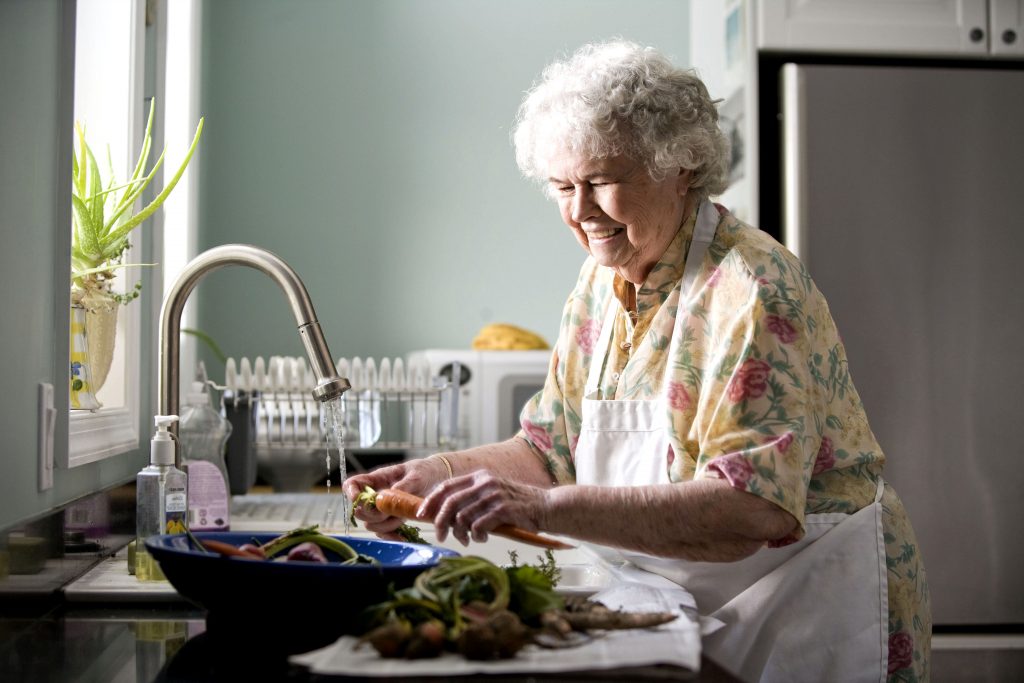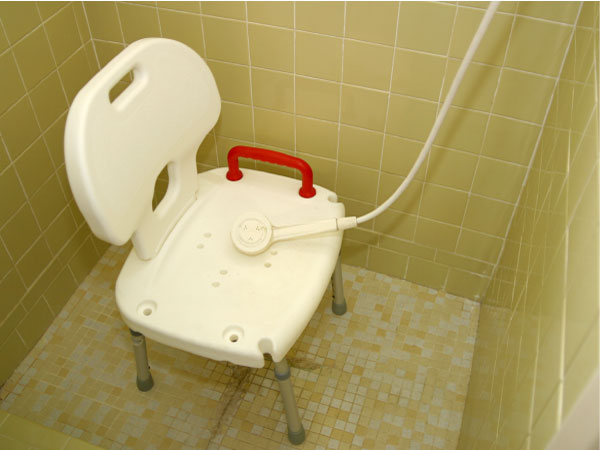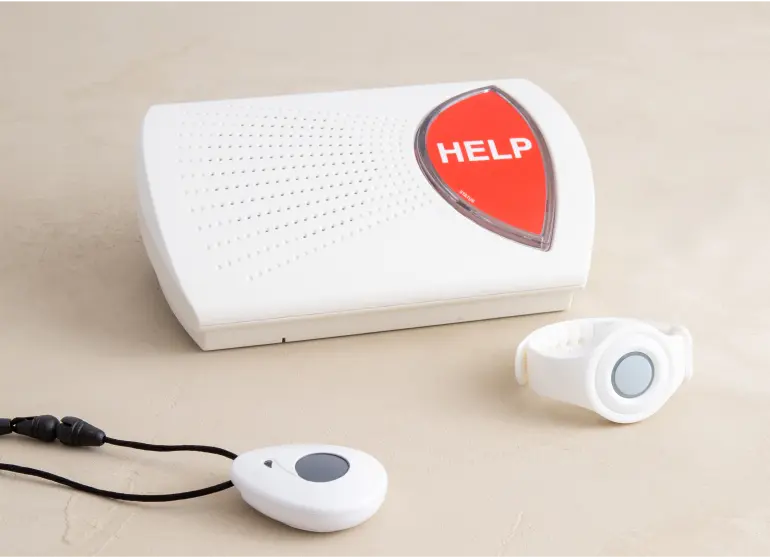When you’re thinking about retirement, you’re often considering financial plans and health goals. However, you might not be thinking about how your current home plays into your future plans. If you’re like most adults, you likely want to stay in the home of your choice for as long as possible. About 77% of all adults over 50 have the goal of staying at home for as long as possible, according to an AARP survey.
If you want to stay at home as independently and as safely as possible, you will likely need to make some adjustments to your environment so that it works for you, and not against you. The better you can have a home that adjusts to meet any aging challenges, the more likely you are to be able to age in place.
Here’s what you need to know about aging in place, how a Certified Aging in Place Specialist (CAPS) can be a part of your team, and other resources for adjusting your home to be a place you can live in for longer.
What is Aging in Place?
Aging in place – the ability to live independently and safely in one’s own home and community – is a preference shared by many seniors and individuals with disabilities. This choice promotes a sense of comfort, security, and familiarity, enabling people to maintain their autonomy regardless of their age or physical abilities.

As individuals age, however, their homes might require modifications to accommodate changing mobility and health needs, making the concept of aging in place a nuanced process.
Aging in place doesn’t mean staying at home without support, assistance, or adaptive resources. Instead, it means seeing where you might need some extra help and bringing that help into the home. It also means adjusting your home’s floor plan or features to make life more safe and comfortable.
Table of Contents
- What Home Modifications May Be Needed for Aging in Place?
- What is a Certified Aging in Place Specialist?
- Who Certifies These Specialists?
- Where Can I Find a Certified Aging in Place Specialist?
- Will Medicare Pay for Aging in Place Home Modifications?
- Where To Find Low Interest Loans, Grants and Nonprofit Assistance for Home Modifications
What Home Modifications May Be Needed for Aging In Place?

When you begin to think about aging in place, it’s important to note if your house is ready for the challenges that can come with aging. In many cases, if you are living in a home that you have lived in for many decades, your home has already adjusted with your stage in life. You might have added rooms as your family grew or enhanced your kitchen when you needed counter space for entertaining. Chances are, though, that your home isn’t quite ready for your aging process yet. Fortunately, you can make adjustments and modifications that can help with fall safety, mobility, and more.
Home modifications tailored for aging in place vary widely based on individual needs. Common adaptations include:
- Installing grab bars in bathrooms to prevent slips and falls
- Adding seating in showers, as well as handheld shower heads
- Removing traditional tub/shower combinations and installing no-step showers
- Widening doorways to allow wheelchair accessibility
- Adding ramps for easy entry and exit
- Improving lighting to enhance visibility, especially in stairwells and darker corners of the home
- Adding a primary bedroom and en suite bathroom to the main floor
- Changing storage to reduce the amount of stretching or standing on tiptoes
- Eliminating tripping hazards throughout the home
- Installing assistive technologies, such as wall-mounted medical alert systems
Keep in mind that your needs will change as you get older. Resist the urge to make many renovations at once, especially if you don’t know your future needs. Instead, make adjustments as you notice challenging areas of the home or as you get a new diagnosis or prognosis.
What is a Certified Aging In Place Specialist?

A Certified Aging in Place Specialist (CAPS) is a professional trained to understand the unique needs of seniors and individuals with disabilities. CAPS are experts in recommending home modifications and design solutions that facilitate aging in place. They can develop plans or recommendations, as well as point out potential deficits in current real estate.
CAPS designees are often remodelers, occupational therapists, and architects, though they can come from other backgrounds as well.
They conduct comprehensive assessments of homes, propose necessary modifications, and oversee the remodeling process. By doing so, they ensure that homes are not only safe and functional but also aesthetically pleasing, creating spaces where aging residents can thrive comfortably.
Who Certifies CAPS?
CAPS professionals are certified by the National Association of Home Builders (NAHB), a reputable organization setting industry standards and providing education and training for experts in the home building and remodeling fields. The CAPS certification was developed in cooperation with the AARP.
The certification equips specialists with the knowledge and skills necessary to effectively address the challenges of aging in place, ensuring that they can provide top-quality assistance to those seeking to modify their homes for independent living.
Where Can I Find a Certified Specialist Near Me?
To find a Certified Aging In Place Specialist, use the database on the NAHB website. You can find those with a CAPS designation near you. This valuable resource helps you connect with experts in your area, ensuring personalized and efficient assistance tailored to your specific requirements.
Once you find a CAPS, you can contact them to speak more about your needs. Typically, they will arrange for a tour of your home, and to ask you questions that help them assess your current and future needs. They will bill for their consultation services, though some will waive consultation fees if you decide to hire them as a project manager for your renovations.
Will Medicare Pay for Aging in Place For Home Modifications

Medicare, the federal health insurance program primarily for seniors, may cover assistive technology devices that are part of the home modification process if they are medically necessary and prescribed by a doctor. This crucial support ensures that seniors receive the tools they need to maintain their independence effectively.
Additionally, Medicare Part B provides coverage for occupational therapist home evaluations. Occupational therapists are skilled professionals trained to assess individuals’ abilities and limitations within their home environments.
An occupational therapist home evaluation involves a comprehensive assessment of the home, focusing on the individual’s specific needs and challenges. During this evaluation, the therapist identifies potential obstacles, assesses mobility and accessibility issues, and recommends appropriate modifications to enhance safety and convenience. By leveraging the expertise of occupational therapists, seniors can benefit from personalized and tailored recommendations, ensuring that their homes are modified in a way that caters to their unique requirements.
It’s important to determine if Medicare will cover home modifications before you begin the process so that you aren’t blindsided by any out-of-pocket costs at the end of the project. Your physician, occupational therapist, and Medicare case manager (if you have one) can be helpful in helping you understand your benefits.
Where To Find Low Interest Loans, Grants and Nonprofit Assistance for Home Modifications
While Medicare assistance and occupational therapist evaluations provide vital support, you might not have all the modifications to your home covered. Fortunately, there are additional financing options available to help cover the costs of home modifications for aging in place:
- Home Equity Loans or Lines of Credit: Homeowners can utilize their home equity through loans or lines of credit, offering relatively low-interest rates. This financial option provides the necessary funds to implement essential modifications, ensuring that homes are adapted to the changing needs of residents.
- Grants and Low-Interest Loans: Many cities and towns offer grants or low-interest loans specifically designed for home modifications. These programs are tailored to support seniors and individuals with disabilities, fostering safer and more accessible living spaces. By exploring local resources, individuals can access financial assistance to initiate necessary modifications. Begin by contacting your town’s senior service department or their disability advocacy department. Your local senior center can also be a wonderful source of information to get you pointed in the direction of local resources.
- Veterans Benefits: Veterans may be eligible for grants or financial assistance through the Department of Veterans Affairs (VA) to fund home modifications if they meet qualifications. These benefits aim to enhance accessibility and safety, enabling veterans to live comfortably and independently in their homes. Speak with your VA caseworker to see if you might qualify for financial assistance for home modifications.
- Federal Loans & Grants: The federal government offers a number of programs that can help seniors with needed home modifications. One such program is the Single-Family Housing Repair Loans & Grants program, also known as the Section 504 Home Repair program. Run by the U.S. Department of Agriculture, the program provides loans or grants to lower-income homeowners so they can remove health and safety hazards within their homes. Loans can be up to $40,000 and have a low 1% interest rate, while grants can be up to $10,000.The Older Americans Act also provides funds to local Area Agencies on Aging (AAA) that include home modifications and repairs. AAA is a broad term used to describe a wide range of nonprofits. The easiest way to find out if funds are available in your community is to call the U.S. Administration on Aging’s Eldercare Locator number at 1-800-677-1116.
- Nonprofit Organizations: Several nonprofit organizations and charities provide financial assistance or low-cost loans to seniors for home modifications. These organizations focus on improving the quality of life for older adults, ensuring that they can age in place with dignity and security. The following are a few nonprofit organizations that may be able to help:
- Habitat For Humanity – Perhaps the best-known housing nonprofit, Habitat has an Aging in Place program that collaborates with human services organizations to evaluate senior needs and provide repairs/modifications to help seniors stay independent.
- Rebuilding Together – A national nonprofit that makes essential repairs to help people stay in their homes. Its Safe at Home program is specifically focused on seniors.
Conclusion
Finding a Certified Aging in Place Specialist is fundamental to ensuring that your home is safe, accessible, and comfortable as you age. These specialists, certified by the National Association of Home Builders, possess the expertise needed to assess your home and recommend appropriate modifications.
With Medicare assistance covering essential devices and occupational therapist evaluations offering personalized recommendations, seniors can receive comprehensive support for their home modification needs.
By exploring various financing options, including home equity loans, grants, veterans benefits, and nonprofit assistance, individuals can secure the necessary funds to invest in their home’s accessibility.
Ultimately, these modifications guarantee a higher quality of life, enabling seniors to live independently and confidently in their homes for years to come.














